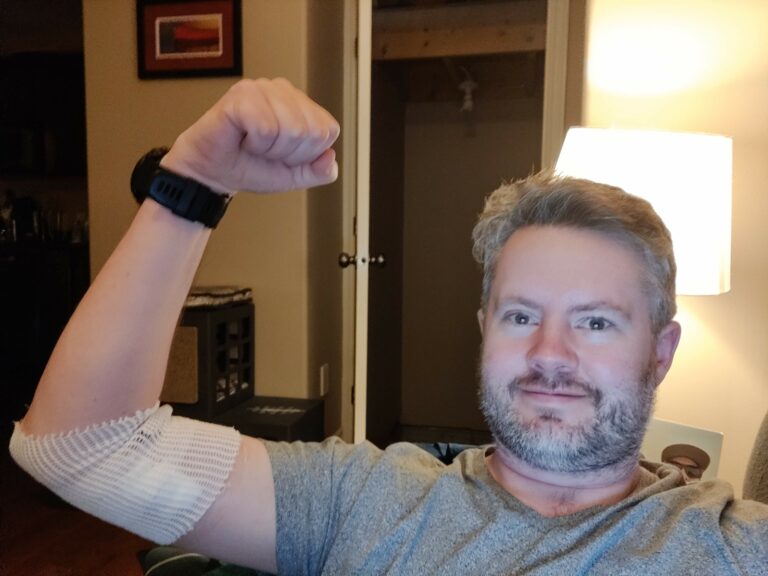It’s Sunday. Tomorrow, just over 24 hours from now, I meet with my medical oncologist to make a decision about the chemotherapy options that have been presented to me.
I’ve spent a lot of time over the past week speaking with peers, medical professionals, friends, and family about some of the hard choices that need to be made related to treatment.
Killing Yourself to Stay Alive.
The one resounding message that I’ve heard loud and clear is just how much chemotherapy sucks. It’s a balancing act between killing the cancer and killing the person receiving treatment.
Side effects in chemotherapy are cumulative. Simply put, it means that the the longer you take a drug, the more side effects there are, and that they can stack on top of each other. Side effects from different drugs can stack as well.
For example, there’s a drug called Oxaliplatin. A gross oversimplification of the drug’s function is that it kills rapidly dividing cells. It, of course, cannot differentiate between healthy cells and cancer cells, so it ends up killing a lot of healthy ones in the process of eliminating the cancer.
One of the side effects of Oxaliplatin is neuropathy—nerve damage—that can cause tingling, burning, numbness, pain, or weakness in the hands and feet. Often, these are permanent effects. The more Oxaliplatin you have, the greater the risk at developing neuropathy.
I’m 34, so these side effects really matter. And that’s one side effect out of many for one of three drugs that I’ll be taking.
Pick Your Poison. Literally.
I was presented with a few different options for chemotherapy:
- 3 months of a combination IV and oral (pill) chemotherapy (CAPOX regimen)
- 6 months of IV chemotherapy (FOLFOX regimen, which is considered the Standard of Care)
- 6 months of a randomized clinical trial IV chemotherapy (FOLFIRINOX as the trial drug or FOLFOX as the control)
I’m proceeding with number two: the Standard of Care.
The plan is to have treatment on Fridays so that I can recover over the weekend and work Monday through Thursday.
Weighing the Options.
My choice is entirely based on the weight of things that are important to me:
- What are the chances of recurrence based on different drugs?
- The chance of recurrence is high regardless of which I take.
- It’s not known whether the trial drug would have a better effect than the standard treatment.
- It is known that the standard treatment is more effective than the three month option, so I can rule that one out entirely.
- What does my quality of life look like across the various options?
- Remember that side effects stack and build up over time. Adding another drug to the mix through the trial would prevent me from working, increase the kind of side effects I’m exposing myself to (vision problems and a permanent ringing in my ears, to name two), and without a known benefit.
- With the standard of care, I will have treatment every two weeks. I can continue working on a modified schedule. I’ll have weeks with no treatment where I can enjoy a fairly normal time.
- What is known about the effectiveness of each treatment option?
- The Standard of Care has been selected after numerous studies and a lot of research.
- The trial drug is used to treat pancreatic cancer. It’s not an experiment. It’s a comparison. Right now there isn’t any data to support it being better than Standard at treating colon cancer or preventing recurrence.
- What impact will each drug have on my day-to-day life today? In the future?
- The Standard of Care has the best outlook for long-term survival.
- It has a manageable impact on day-to-day life.
What’s Next?
It’s going to be an intense week.
Between Monday and Friday, I’ll:
- Meet with my oncologist and give them my treatment decision
- Have a PICC line installed for the delivery of medication
- Undergo more blood work and pre-treatment testing
- Start treatment (with any luck)
As the plan comes fully together, I’ll share some updates.
Take care for now!








